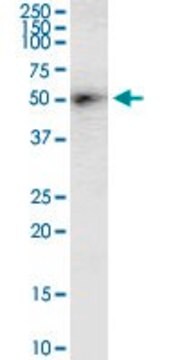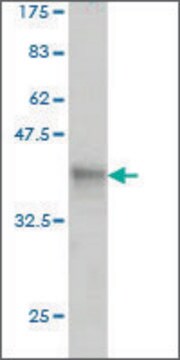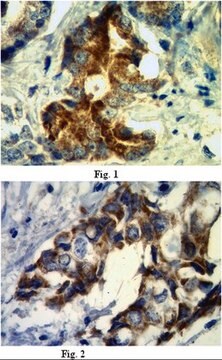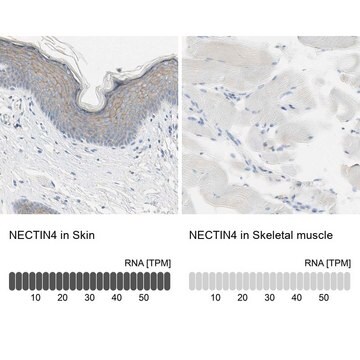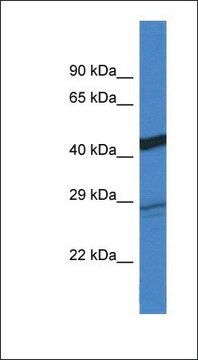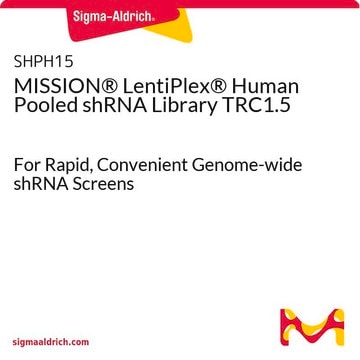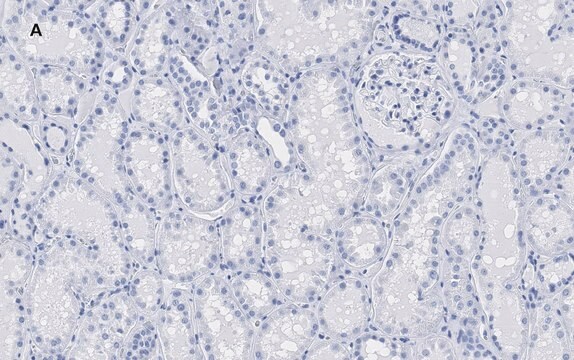SAB4200370
Anti-PVRL4 antibody, Mouse monoclonal
clone N4.101.10, purified from hybridoma cell culture
Synonym(s):
Monoclonal Anti-Nectin-4/PVRL4 antibody produced in mouse, Monoclonal Anti-PVRL4 antibody produced in mouse, Anti-EDSS1, Anti-LNIR, Anti-Nectin-4, Anti-PRR4, Anti-PVRL4, Anti-Poliovirus receptor-related 4
About This Item
ICC
immunocytochemistry: 2.5-5 μg/mL using using MDA-MB-231 cells
Recommended Products
biological source
mouse
Quality Level
conjugate
unconjugated
antibody form
purified from hybridoma cell culture
antibody product type
primary antibodies
clone
N4.101.10, monoclonal
form
buffered aqueous solution
species reactivity
human
concentration
~1.0 mg/mL
technique(s)
flow cytometry: 5-10 μg/test using using 1x106 MDA-MB-231 cells
immunocytochemistry: 2.5-5 μg/mL using using MDA-MB-231 cells
isotype
IgG1
shipped in
dry ice
storage temp.
−20°C
target post-translational modification
unmodified
Gene Information
human ... PVRL4(81607)
General description
Immunogen
Application
Biochem/physiol Actions
Physical form
Disclaimer
Not finding the right product?
Try our Product Selector Tool.
Storage Class Code
10 - Combustible liquids
Flash Point(F)
Not applicable
Flash Point(C)
Not applicable
Regulatory Listings
Regulatory Listings are mainly provided for chemical products. Only limited information can be provided here for non-chemical products. No entry means none of the components are listed. It is the user’s obligation to ensure the safe and legal use of the product.
JAN Code
SAB4200370-VAR:
SAB4200370-BULK:
SAB4200370-200UL:
Choose from one of the most recent versions:
Certificates of Analysis (COA)
Don't see the Right Version?
If you require a particular version, you can look up a specific certificate by the Lot or Batch number.
Already Own This Product?
Find documentation for the products that you have recently purchased in the Document Library.
Our team of scientists has experience in all areas of research including Life Science, Material Science, Chemical Synthesis, Chromatography, Analytical and many others.
Contact Technical Service